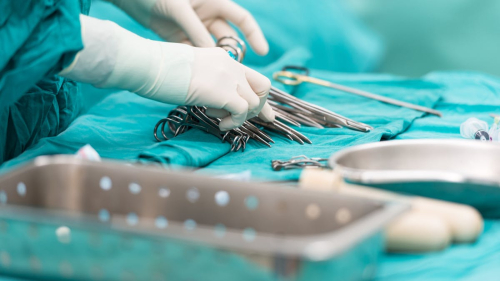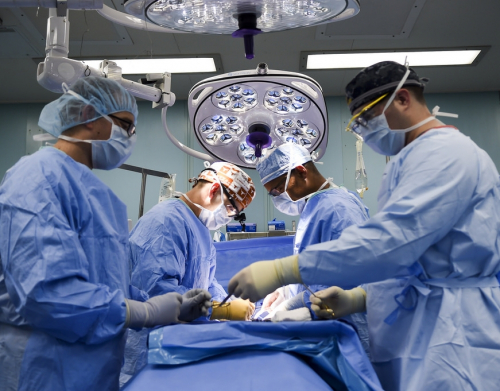18 Tips for The Core Surgical Interviews
Knowing how and when to start preparing for the Core Surgical Training Application and Interview can be difficult. This article is written by a candidate who got her first choice job directly from F2 and offers some insights into how to prepare.
Taking that first step when applying for a core surgical post can be daunting – the year above always seems to know more and following in their shoes needs enthusiasm, drive and determination.
The aim of the core surgical interview is to see what you have done to illustrate enthusiasm for surgery, identify your personal attributes towards teamwork and working in demanding environments, highlighting the ability to train you as a surgeon and that you are a friendly and approachable person.
Below are a list of 18 top tips to get you thinking about the upcoming Core Surgery Interviews.
Our Top 18 Tips for the Core Surgery Interview
1. Arrive early as running late for your time slot isn’t ideal for your nerves nor does it illustrate a professional manner and an ability to time keep
2. Set out your portfolio is a way that is easy to follow for both the interviewer and yourself (especially if they ask you to find the correct page mid-interview). Always have a 10 point contents page – no sub headings, as they won’t bother reading them. Remember surgeons are very concise and particular people – they don’t appreciate multiple coloured stickers, file dividers or pages of teaching notes. They are looking for evidence that you have achieved all the points required by the ‘person specification’ and they only have 10-15 minutes to look at it before speaking to you. MAKE IT EASY FOR THEM.
3. Before you enter the portfolio station, the assessors will have spent 15 minutes reading through your portfolio and validating the questions you have answered in the online application form. The station is divided into two halves – one to assess your clinical governance contributions the other to assess your passion and extracurricular activities. You will be scored independently by two assessors.
4. Interviewers have only 15 minutes in which to scan through your CV and Portfolio. Having a well-prepared, clearly structured Portfolio in which items can be quickly located will help you score marks and make life easy for the interviewers.
5. Spend time re-reading old audits, presentations and publications. Anything included in your Portfolio may be discussed by the interviewers and it is important that you can recall data and results from projects you undertook several years previously
6. Include two copies of your CV (one for each interviewer)
7. The interview is set out in a corridor of rooms – just like a PACES or OSCE exams. You will be moved from one door to another via an usher – there is usually water between stations if you require it.
8. Each door will have a heading e.g. PORTFOLIO. Some doors may have a scenario which you will be expected to read for 1 minute prior to entering the room. This will be the basis for the start of the questions so try and think ahead to the questions they may ask you.
9. Interviewers are not going to try and trick you – if they repeat a question it’s because they want a second answer (e.g. the one that they can give you marks for). If they rephrase the same question it is to try and help you get back on track with the answers they are expecting – try not to repeat the same answer you have just given.
10. If you are stuck for an answer you can either milestone the answer again so as to give yourself a chance to think logically or say ‘I’m not sure of the answer presently can we move on and come back to that one’.
11. When you start an answer you need to illustrate you have a good understanding of safety and that the patient is your primary concern. By starting your answer with this you already tick the majority of the boxes!
12. To answer any question just think about ‘FRAMING’. Set the scene, explain your involvement, how you improved patient safety and what you learnt. Simple!
13. This interview is not just about having the correct answers – it is the way you communicate with your potential employer. Speak with confidence and allow a connection to form between yourself and the interviewer. That way you will have more chance at feeling at ease during the process. Believe they are on your side because this time and only this time they are!
14. Think Business when you go for an interview – If you haven’t seen business men/women wearing that outfit then DO NOT wear it. Conservative / Simple ties for boys (no fancy patterns), women black / grey dress or suit, hair back, one set of earrings. Surgery is an old school sport and therefore you need to comply with expected dress code.
15. Courses expected: ILS, ALS, BSS
16. Extra marks courses: ATLS, Teach the Teacher, a management course, and courses of your preferred surgical subject e.g. Biomechanics if orthopedically minded
17. Exams Required: MRCS Part A
18. Most of all be yourself – no matter how much you try nerves will be present – smile, be approachable and show them that you are safe!
Be sure to look over the station timings and marking criteria:
Portfolio, Management and Clinical.
Get practising by trying our Sample Questions and then sign up for our core surgery interview question bank.



